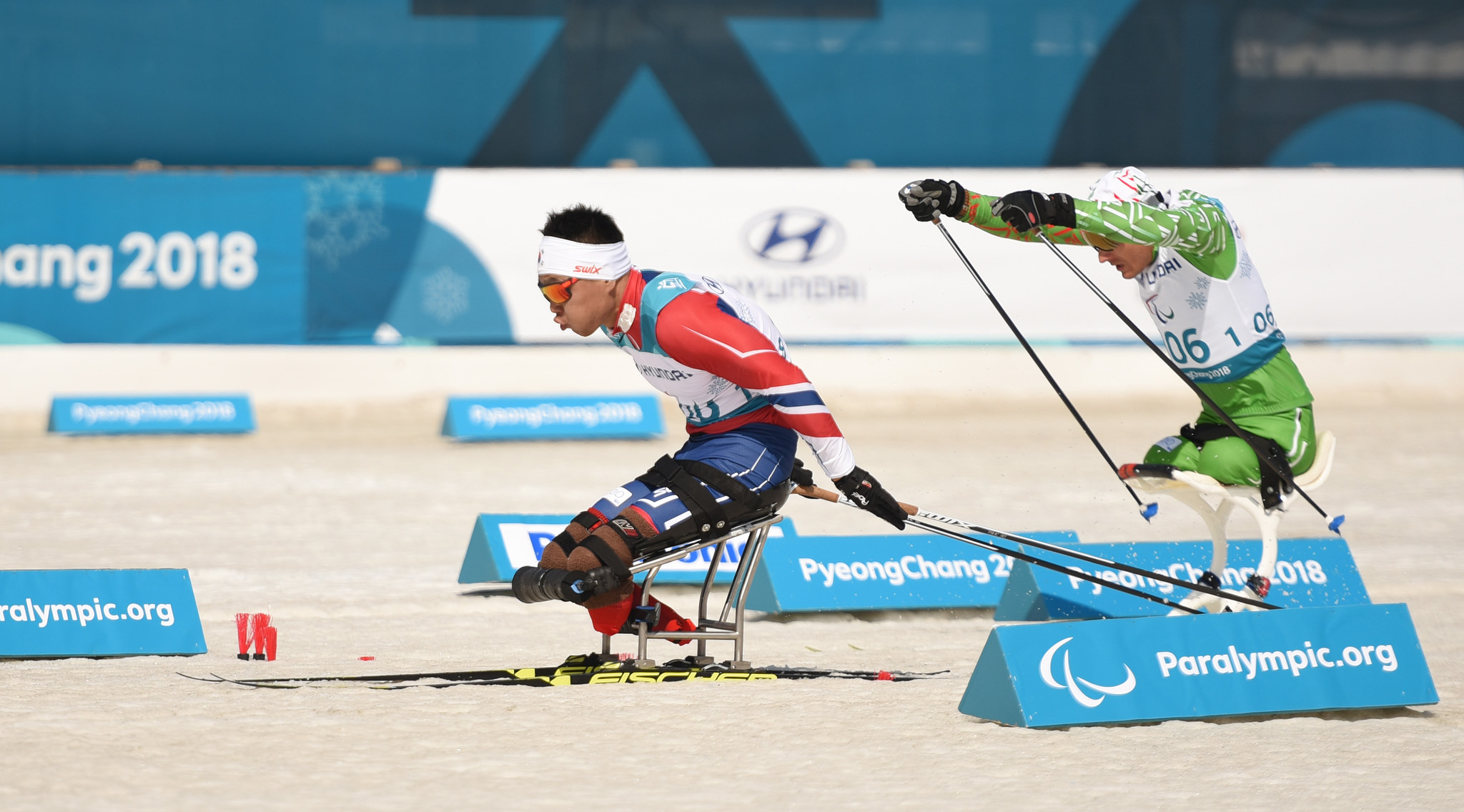It was five summers past in a country glowing with pride that the late Professor Stephen Hawking stood before thousands of Paralympic athletes and said, “We are all different… but we share the same human spirit.”
Professor Hawking had just set the tone for a Paralympic Games that would change our perception of disability for a generation. But as many began to ride this wave of hope, has another less glowing story unfolded below the surface? At a time when Britain’s para-athletes return from the PyeongChang Paralympic Winter Games, it’s time to reflect and ask what, really, is the 2012 legacy?
More Than Medals
Image Credit: Paralympics / YouTube
The memorable London games saw Britain finish third, with 120 medals. Fast forward four years and the British Paralympics team returned home from Rio second behind China, with 147 medals, 64 of which were gold. It was a success hailed by the Queen as “magnificent”. The GB Para team’s 2016 targets had been smashed, the bar had been raised once again and Britain had reasserted its international reputation as a leading Paralympic nation.
The Paralympic movement has its roots in Britain, beginning in 1948 with a gathering of Second World War veterans from Stoke Mandeville Hospital in Buckinghamshire. In the 64 years since, the Paralympics has boomed from a pool of sixteen competitors to more than 4,200 athletes from 165 countries displaying their talents across 20 sports. Once regarded as a niche idea, in 2012 we saw the names Ellie Simmonds and Jonnie Peacock on billboards, on buses and in our schools. The unthinkable had become the reality, and Hawking’s ambition for 2012 to be “about transforming our perception of the world” seemed a dream no longer.
London was the starting point. Now we’re at the foot of the mountain.
Tim Hollingsworth, British Paralympic Association Chief
But it doesn’t end there, because maybe another scorecard exists. Community support, funding, airtime and awareness are all integral to those medal outcomes. However, these aspects can easily slip below the headlines. And what of life for disabled people beyond the world of elite athletes: has Paralympic success in fact had the wider social impact, such as changing attitudes to disability, that was hoped for? Tim Hollingsworth, the chief of the British Paralympic Association recognised some of these challenges when he said in the aftermath of London 2012, “We prefer to talk about momentum rather than legacy… London…was the starting point. Now we’re at the foot of the mountain.”
Has Airtime Improved?
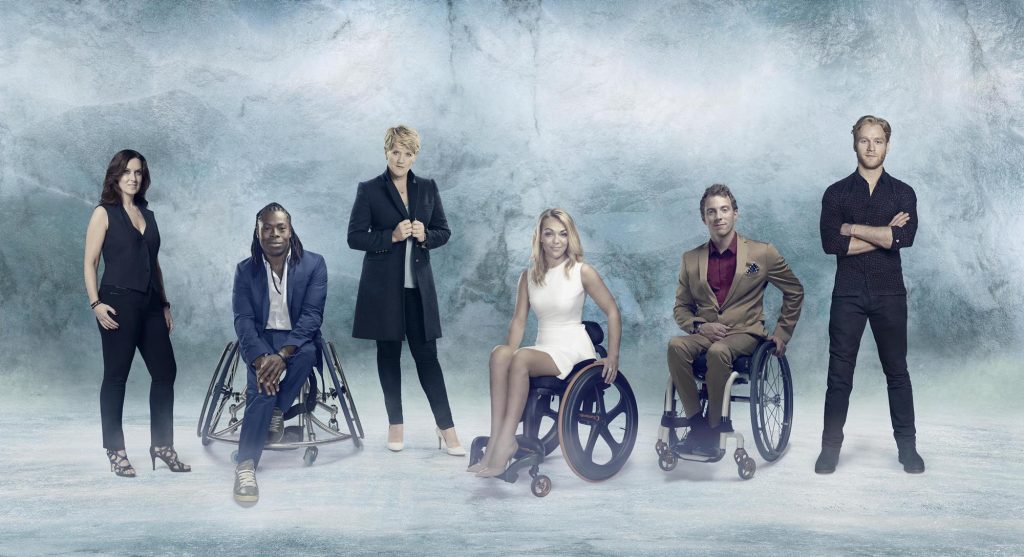 The 2018 Presenter line-up at Channel 4. Image Credit: Channel 4 Press Office
The 2018 Presenter line-up at Channel 4. Image Credit: Channel 4 Press Office
Increased airtime is one area where there seems to have been some success. Channel 4 has been the official broadcaster for the last two Paralympics and Winter Paralympics, and many argue it has been integral to raising awareness of disability sport. Take this year’s South Korean games: Channel 4 has broadcast 100 hours of coverage, with more than 60% of its on-screen presenters themselves disabled. The irreverent and informal approach of the likes of Ade Adepitan, Sophie Morgan, RJ Mitte and Josh Widdecombe have added colour and life to Paralympic broadcasting. This has most clearly been manifested on The Last Leg which, although controversial at times, has broken down many taboos around disability.
You have to make sure people understand who they’re watching, what they’re watching and why they’re watching.
Clare Balding
Clare Balding says, “You have to make sure people understand who they’re watching, what they’re watching and why they’re watching, and Channel 4 does that really well, whether it’s through Lexi (the graphic system demystifying Paralympic classification) or the access to athletes willing to talk about their sport and their background.”
This impact was highlighted by a study conducted in late 2012 by researchers at Lancaster University, which found that British press reporting around the London Paralympics represented disabled people as more active parts of society. Positive ways of referring to disabled people in the British media also increased as negative terminology declined.
Is Funding Fair?
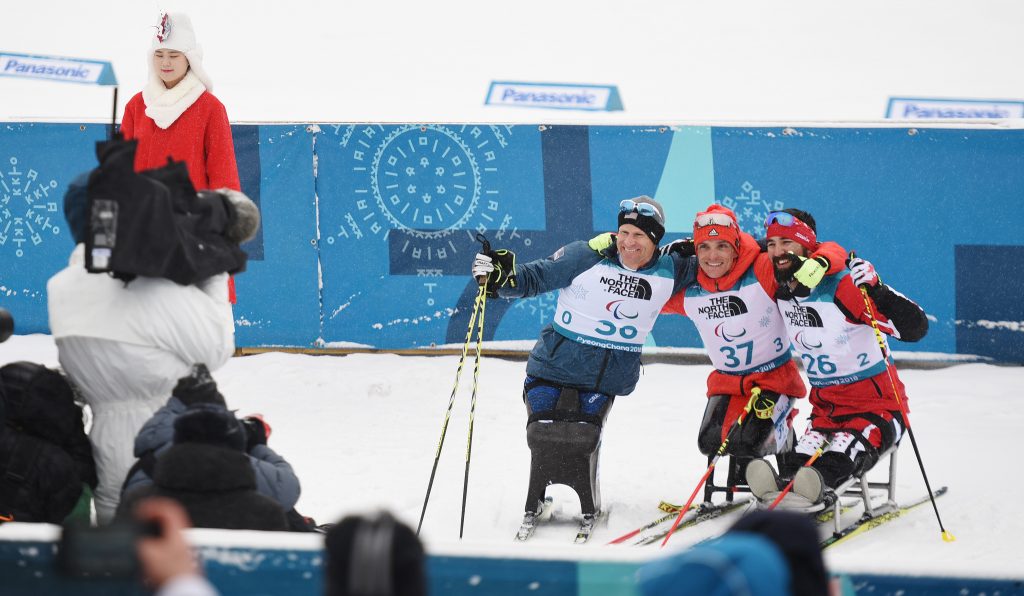 Image Credit: Republic of Korea / Flickr
Image Credit: Republic of Korea / Flickr
Funding is a more controversial area. Particularly prevalent in the debate over the London 2012 Paralympic legacy, the discussion of funding goes to the heart of day-to-day experiences for individuals and communities.
Every Summer and Winter Paralympic games, millions of pounds are injected into the nation’s best para-athletes by funding body UK Sport. However, funding is not split evenly between Olympic and Paralympic sports. For this year’s Pyeongchang games UK Sport provided a total of £32.3m, and this was split as £28.4m for the Winter Olympic team and just £3.9m for the Paralympic team. This is despite the respective teams winning an equal number of medals and finishing in the same region of the medal table.
Ed Warner, the UK Athletics chief until 2017, shed light on the current situation where individual Olympic and Paralympic athletes have funding parity, but governing bodies do not. Warner highlights that UK Athletics has £11.8m of funding for the Rio-Tokyo cycle for Paralympians, less than half the amount for Olympians at £27m. This is despite Britain’s Olympic athletes winning seven medals in Rio, two of them gold, while GB Paralympians left the track and field with 33 medals, 15 of them gold.
I don’t think any of us should rest until medals are regarded of equal value by the funding agency.
Ed Warner, UK Athletics chair 2007-2017
As Warner says: “Look at the numbers and see how much UK Sport invested in para sports and able-bodied sports and there’s still masses of clear water between the two. I don’t think any of us should rest until medals are regarded of equal value by the funding agency.
UK Sport refute any accusation of unfairness, pointing towards the 16 Olympic and 16 Paralympic sports being funded for the Tokyo 2020 games.
Beyond the elite para-athletes, the London 2012 legacy charity ‘Spirit of 2012’ have worked with more than 100 communities across Britain. They have invested more than £25m into community projects to encourage wellbeing, social connectedness and challenge negative perceptions of disability. But what effect has this actually had on the ground? Criticisms of the UK’s attitude towards disability from the United Nations (UN) suggest that there is still a long way to go when it comes to people’s day-to-day lives.
What About Disability Rights Beyond The Elite?
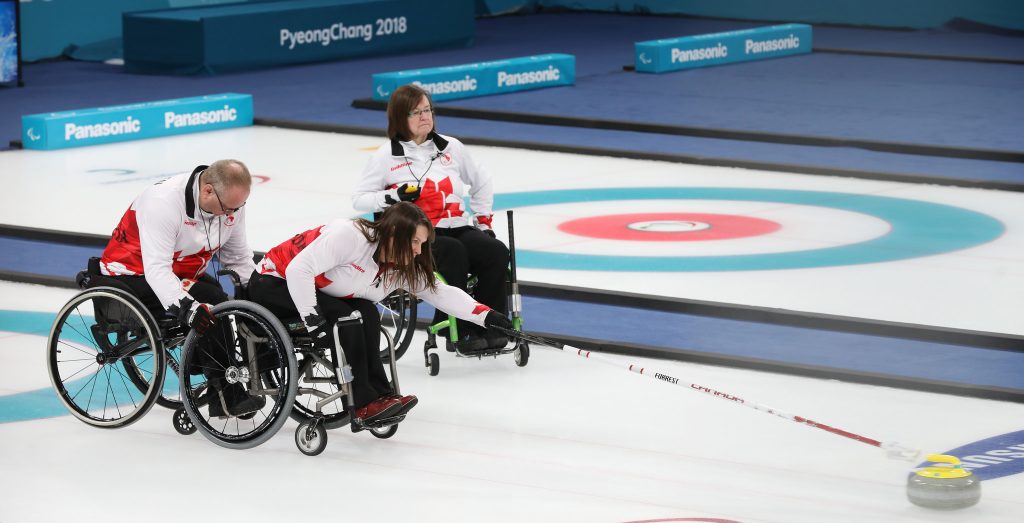 Last August, the UN Committee on the Rights of Persons with Disabilities criticised the UK government for falling short of reflecting the UN convention on disabled people’s rights (ratified by Britain in 2009) in UK law and policy. One criticism was the lack of resources to allow disabled people to live happy and independent lives in the community.
Last August, the UN Committee on the Rights of Persons with Disabilities criticised the UK government for falling short of reflecting the UN convention on disabled people’s rights (ratified by Britain in 2009) in UK law and policy. One criticism was the lack of resources to allow disabled people to live happy and independent lives in the community.
This report came following a UN inquiry in November 2016 claiming austerity-driven welfare and social care policies by the UK government have involved “systematic violations” of disabled people’s rights. The same inquiry also noted a negative perception of disabled people instilled by the government as “lazy and putting a burden on taxpayers”, and “increasing hostility, aggressive behaviour and sometimes attacks to their personal integrity”.
A key criticism made by the 2017 report was that changes to benefits for disabled people have violated disabled people’s rights. RightsInfo explained in February the importance of a legal challenge being brought against the UK government by a disabled man, who, since being placed on the new monthly benefit Universal Credit, had experienced financial hardship due to some of his disability premiums being withdrawn.
It’s a worrying issue at a time when government support and recognition of independence is so integral to the development of future generations of Paralympians in Britain, both at professional and grassroots level. This was recognised by Hollingsworth five years ago, when he said: “It would clearly be a concern if there was a situation outside of our control that was going to reduce the number of potential athletes for 2020.”
Disabled people are portrayed in three different ways: you’re either a Paralympian, you’re a benefit scrounger, or you’re a victim and you can’t really crossover
Baroness Tanni Grey-Thompson
His statement came after triple Paralympic equestrian champion Sophie Christiansen repeatedly raised fears that the replacement of Disability Living Allowance with the Personal Independence Payment could harm the next generation of Para-athletes.
As Christiansen said: “I think, beyond Rio, it will have an effect. That’s youngsters coming up, and parents of those youngsters, they get the benefits and if they can’t afford to take their kids training because they need a specially-adapted car or whatever, they’re not going to go. I think it will affect 2020 and beyond.”
This uncertainty was shared by Baroness Tanni Grey-Thompson, who said in 2015 that the change of perception brought about by the London 2012 games has not been reflected in wider communities.
She said: “Disabled people are portrayed in three different ways: you’re either a Paralympian, you’re a benefit scrounger, or you’re a victim and you can’t really crossover. The vast majority of disabled people aren’t benefit scroungers. There’s a huge number that don’t claim anything at all…We’re still a long way from equality and the disability rights movement [is] still kind of lost behind other minority groups.”
London 2012: A Flame Still Alight?
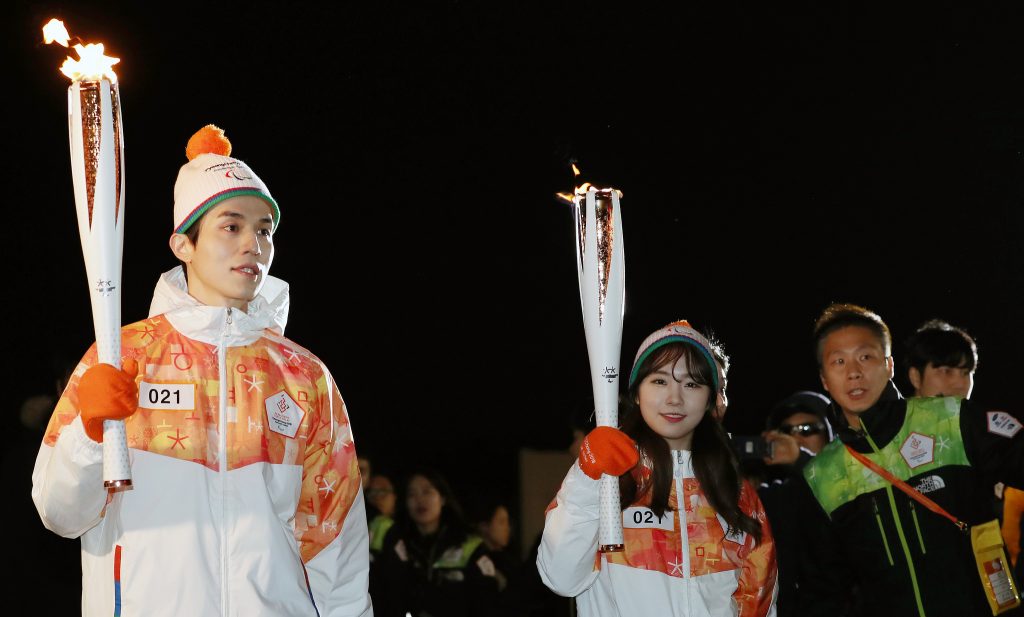 Image Credit: Republic of Korea / Flickr
Image Credit: Republic of Korea / Flickr
The picture, clearly, is complex. Britain’s performance in Rio and Pyeongchang can be seen as hopeful for the continued progress and development of Paralympic sport in Britain, keeping up the momentum that Tim Hollingsworth foresaw after London 2012. The representation of disability sport through Paralympic broadcasting and wider media coverage seems to have improved significantly, and negative barriers and perceptions are being broken down every day.
But there appears to be a much darker side to all of this, an area that is perhaps not discussed enough. Have positive perceptions filtered down to communities? Are National Lottery-funded community projects and other charity work really breaking stigma around disability support? Are cuts to disability benefits and the attitudes this fosters, actually outweighing this community work? Is Paralympic funding fair, and is it sustainable in a context of the UN claiming that disabled people’s rights are being systemically violated in Britain?
The next generation of Paralympians emerging at Tokyo and beyond will help us answer these questions, because at present the future seems uncertain and the flame of London 2012 is fading.

